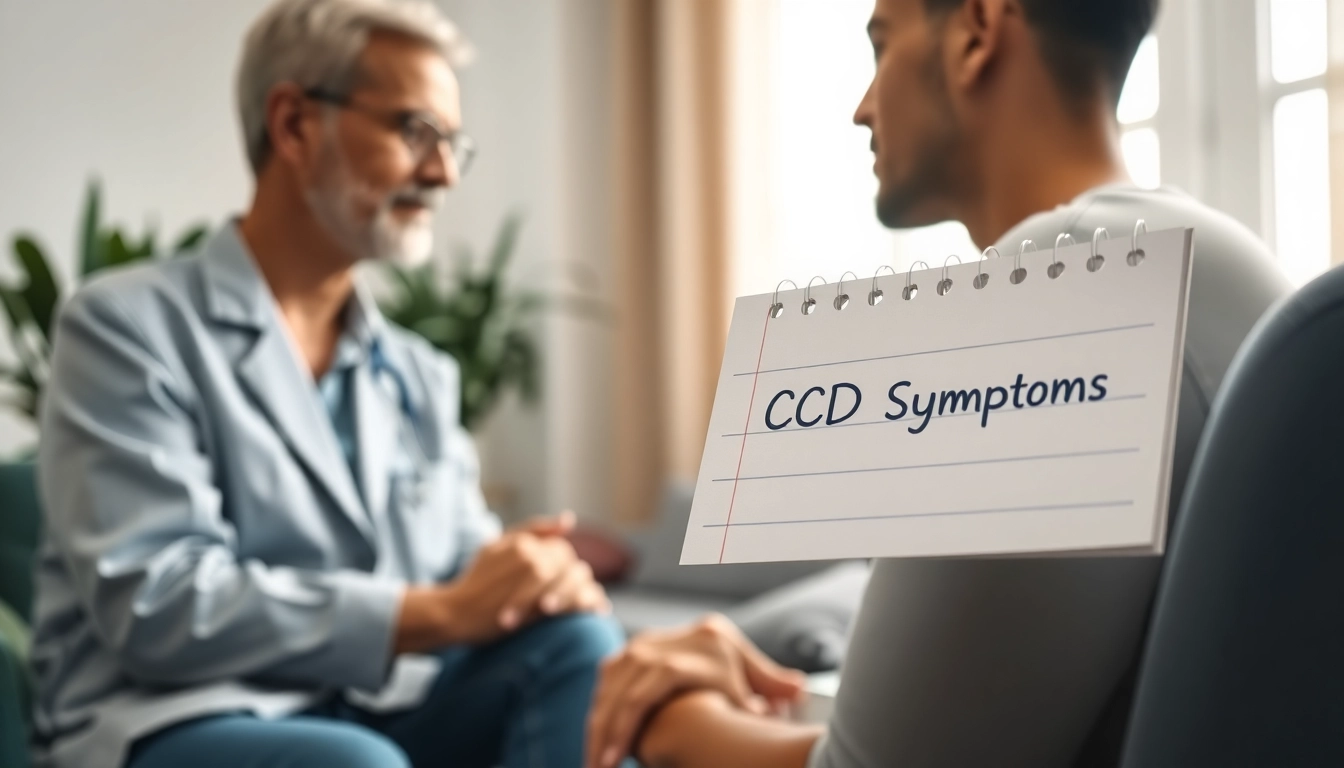
Understanding OCD Symptoms: A Comprehensive Guide to Identification and Management
What Are OCD Symptoms?
Introduction to OCD and Its Impact
Obsessive-Compulsive Disorder (OCD) is a mental health condition characterized by persistent, unwanted thoughts (obsessions) and repetitive behaviors (compulsions). Those suffering from OCD experience a cycle of obsessions causing significant anxiety, leading to compulsive actions aimed at reducing the distress caused by these obsessions. This complex interplay not only affects the individual’s mental health but also disrupts daily functioning, relationships, and overall quality of life. The ocd symptoms can manifest differently from one person to another, making it crucial to understand the diverse indicators associated with this disorder.
Common Indicators of OCD Symptoms
Individuals with OCD may experience a range of symptoms. Common obsessions include fears of contamination, fears of harming oneself or others, and intrusive thoughts about morality or safety. Compulsions often involve repetitive behaviors like excessive hand washing, checking if doors are locked, or arranging items in a particular order. It’s essential to recognize that these symptoms can vary significantly in terms of severity and type, and one might not experience both obsessions and compulsions.
Differentiating OCD from Other Disorders
OCD often co-occurs with other mental health disorders, such as generalized anxiety disorder, specific phobias, or depression, complicating the diagnosis and treatment. Unlike generalized anxiety disorder, where the worry is often more broad and not tied to specific obsessions, OCD presents with clearly defined obsessions that lead to compulsive behaviors. Proper diagnosis by a mental health professional is crucial for effective treatment.
Identifying OCD Symptoms
Self-Assessment Tools and Techniques
Self-evaluation can be a helpful first step in identifying OCD symptoms. Various assessment tools, such as the Yale-Brown Obsessive Compulsive Scale (Y-BOCS), can help quantify the severity of symptoms. These questionnaires often explore the frequency and intensity of obsessions and compulsions, providing valuable insights into one’s condition.
Signs to Recognize in Daily Life
Recognizing OCD symptoms in daily life can involve observing patterns of behavior that significantly disrupt routine activities. For example, someone might spend excessive time performing rituals, resulting in lateness to appointments or neglecting responsibilities. Acknowledging these signs openly can lead to a greater understanding of the condition and prompt the need for help.
When to Seek Professional Help
If obsessions and compulsions interfere with daily life, such as impacting work, education, or social relationships, it’s essential to seek professional help. A licensed mental health professional can provide a comprehensive assessment and propose treatment options tailored to the individual’s needs.
Treatment Options for OCD Symptoms
Cognitive Behavioral Therapy (CBT) Explained
Cognitive Behavioral Therapy, particularly Exposure and Response Prevention (ERP), is considered one of the most effective treatments for OCD. This therapeutic approach encourages individuals to face their fears gradually while resisting the urge to perform compulsive behaviors. Over time, this process can help reduce the anxiety associated with obsessions, leading to improved functioning and quality of life.
Medications and Their Role in Management
Medications, such as selective serotonin reuptake inhibitors (SSRIs), can play a critical role in managing OCD symptoms. These drugs help balance neurotransmitters in the brain, potentially alleviating the severity of symptoms. A healthcare professional can provide guidance on medication options, dosages, and potential side effects.
Alternative Therapies: Do They Work?
Some individuals find relief through alternative therapies such as yoga, acupuncture, or herbal supplements. While these approaches can complement traditional treatments, it’s crucial to discuss them with a healthcare provider to ensure safety and efficacy. Research on the effectiveness of these therapies for OCD is ongoing, and individual responses may vary.
Coping Strategies for Managing OCD Symptoms
Daily Practices to Reduce Anxiety
Implementing daily practices can significantly reduce the anxiety associated with OCD symptoms. Techniques such as maintaining a structured routine, engaging in regular physical activity, and practicing relaxation techniques can enhance well-being and provide a sense of control over anxiety.
The Importance of Support Networks
Building a supportive community is vital for anyone living with OCD. Friends, family, or support groups can provide understanding, encouragement, and shared experiences that mitigate feelings of isolation. Knowing that others face similar challenges can foster resilience and hope.
Mindfulness and Meditation Techniques
Mindfulness and meditation techniques can help calm the mind and reduce anxiety. By practicing mindfulness, individuals can develop a greater awareness of their thoughts and emotions without judgment, which is particularly beneficial in managing obsessive thoughts. Regular meditation practice may also enhance overall emotional resilience and coping capabilities.
Living with OCD Symptoms
Success Stories and Personal Insights
Hearing from those who have navigated their journey with OCD can be incredibly inspiring. Many individuals share success stories where treatment, combined with personal determination, has led to effective symptom management and improved quality of life. These stories often highlight the importance of seeking help, utilizing available resources, and practicing persistence in recovery.
Resources for Ongoing Support
Numerous resources are available for ongoing support, including local mental health services, online forums, and non-profit organizations dedicated to OCD awareness and education. Utilizing these resources can provide additional guidance and encouragement throughout the recovery process.
Future Perspectives on OCD Research
Current research explores various aspects of OCD, including genetic predispositions, neurobiological factors, and the effectiveness of emerging therapies. As our understanding of OCD evolves, new treatment options may become available that can improve outcomes for those affected by the disorder.
